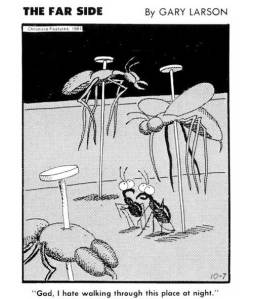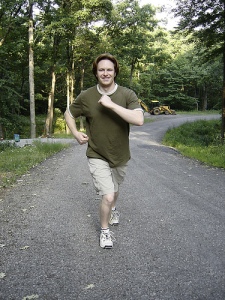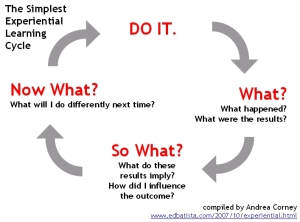It’s that time of the semester where everyone is trying their best not to hit the wall. It’s deep enough into the semester to feel burnt-out, but it’s not yet far along to see the glorious light at the end of the tunnel that is winter break.
Students enrolled in these unusual classes are no doubt feeling the pressure, but at least they get to learn from an interesting perspective. Without further ado, here are some of the most unique college classes offered across the U.S.
Philosophy and Star Trek (Georgetown University)
The most common question in this class: “How many gigabytes does the L-19 contain?”
The second most common question: “What’s a girl?”
History of African-American Hairstyles (Stanford University)
In all fairness, most people attend Stanford to bolster their hairstyling credentials.
Far Side Entomology (Oregon State University)
Entomology is the study of insects, for those of you that did not already know (I just had to look it up myself). Implementing the greatest comic strip of all time is just plain brilliant. The Far Side has the ability to make any subject interesting.

Inflatable Public Sculpture (Rensselear Polytechnic Institute)
I wonder if these are the people responsible for this.
Underwater Basket Weaving (UC San Diego)
I’ve heard this referenced countless times in the popular media, but I never fathomed the idea of it being an actual class. The plants that are weaved into wicker baskets need to soak first, so that kind of explains the underwater part. I think.
The Art of Walking (Centre College)
This is actually a philosophy course, but instead of sitting in a classroom you take walks with the professor and his dog. Plus you learn how to look cool while you walk, just like this guy.

I owe it all to the Art of Walking!
Daytime Serials: Family and Social Roles (University of Wisconsin)
I took a family roles class as an undergraduate and we discussed the dynamics of fictional families all the time, so this makes sense. I even wrote my final paper on the Gavin family from Rescue Me, which is basically a soap opera for men.
Examining Urban Crime, Policing, Politics, and Delinquency Through The Wire (Syracuse University)
The Wire has been roundly hailed as the greatest television show of all time. It is a layered masterpiece brimming with precise detail that covers urban issues often ignored by the popular press. Of all the classes on this list, this course would easily be the most intimidating.
Dukes of Hazard and its Social Significance (University of Alabama)
The final consists of hopping through the window of the General Lee while ardently denying the North won the Civil War.
Wine and Beer Appreciation (Syracuse University)
My school offers this course too. The class meets in the downtown area Thursday, Friday, and Saturday evenings. I think I may audit this week’s class as soon as I finish this blog post.
Joe Paterno and the Media (Penn State University)
Joe Paterno’s press conferences should be required viewing for any mass media student. He has been at Penn State since 1950, and has never failed to be the smartest person in the room. Whenever some young reporter asks a silly question, Paterno will just look at them and say “That’s a stupid question,” before moving on to another suddenly timid reporter.
My personal favorite Paterno presser moment happened a few years ago after he decided he had enough sensationalism for one day. He gave a long lecture to the media members in the room about how sports journalism disappeared about 20 years ago. He concluded by saying, “I’m not sure what happened but somewhere along the way, you all got taken,” before standing up walking out on quite a few embarrassed reporters.

Can you hear this guys? What if I turn it up for you?
*Sorry for the rant. Check back next week for more on my man-crush on JoePa.
Elvis Anthology (Iowa University)
The original title for this class was “How White People Steal Everything and Turn it Into Mainstream Garbage.”
In all seriousness, implementing pop culture into boring subject matter is a great way to get students interested in the class and motivate them to learn. The administrators and professors responsible for these type of classes should be applauded for thinking outside the box when designing the curriculum. The majority of these classes probably have much deeper undertones than expected. Students that are enrolled in such classes have a fantastic opportunity to learn while having a little bit of fun.
These are only 12 courses included in this list and I’m sure there are plenty of other unusal classes that I missed. Have you ever taken or heard of a class that could be included on this list?
Tags: Civil War, Dukes of Hazard, Elvis, Georgetown University, Joe Paterno, Oregon State University, Penn State, Rescue Me, Stanford University, Syracuse University, The Far Side, The Wire, UC San Diego, underwater basket weaving, University of Alabama, University of Iowa, University of Wisconsin






















